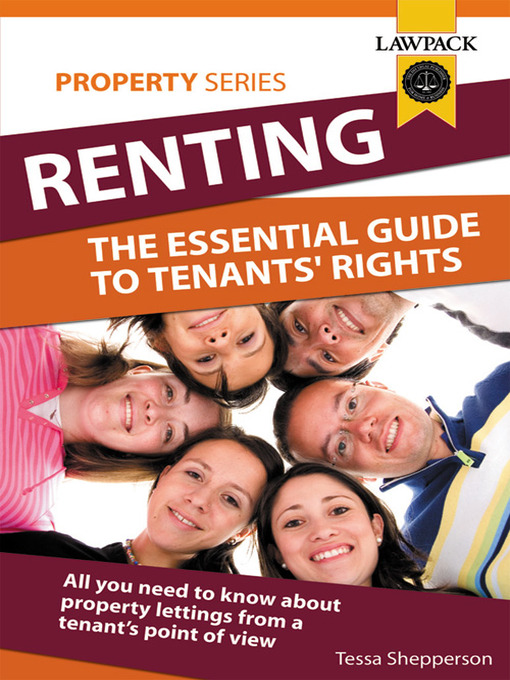This essential guidebook for tenants and landlords will answer all your questions about tenancy law, tenant's rights and how you and your properties are protected by the law.
'This guide not only contains a wealth of information which can be put to good practical use, it is also a delight to read.' Jacky Peacock OBE, Director of Brent Private Tenants' Rights Group
Thirty per cent of accommodation in England and Wales is rented. There are many books on property and residential lettings that cater for the needs of landlords, but few that approach the subject from a tenant's point of view.
Enlightened landlords know where they stand, but many tenants remain in the dark when it comes to understanding what they should expect when renting. What's more, recent legislation on houses in multiple occupation and tenancy deposit schemes is something all tenants should know about.
Written by Tessa Shepperson, a specialist in tenancy law, this book has been written to help you understand the law as it affects tenants. In a practical and easy-to-understand manner, this guide tells you exactly what the rights of tenants are. It also highlights exactly what their responsibilities under the law are.
Renting: The Essential Guide covers...
Valid in England and Wales.

